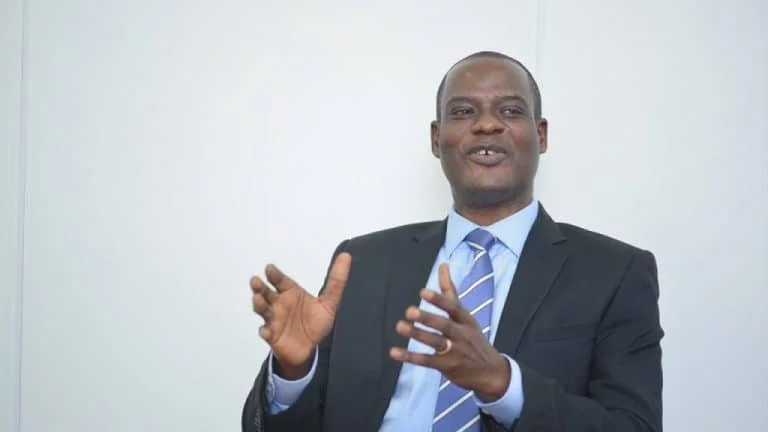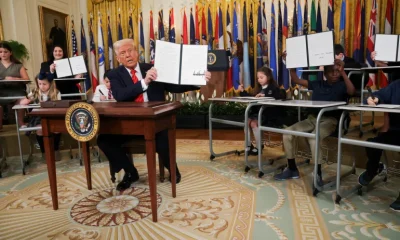News
FG Denies VAT Rate Increase Proposal Amid Tax Reform Discussions

-
Federal Government denies proposing VAT rate increase
-
Chairman of Presidential Committee, refutes earlier media reports, stating proposals were misrepresented.
-
Committee proposes a VAT credit for businesses, removal of VAT on essential items.
EKO HOT BLOG reports that the Federal Government has denied media reports that it is proposing an increase in the Value Added Tax (VAT) rate.
The Chairman of the Presidential Committee on Fiscal Policy and Tax Reforms, Taiwo Oyedele, made this known in a series of posts via his official X handle on Wednesday evening.
EDITOR’S PICKS
- MTN Nigeria To Adjust Call tariffs Amid Operational Challenges
- Details As Tinubu’s Govt Plans Inauguration Of 3 Massive Gas Infrastructure Projects
- ‘Reopen Matawalle’s Case’ – Protesters Storm EFCC Headquarters
This online media Platform earlier reported that Oyedele had suggested some changes to the current VAT rate, including increasing the state and local share of the VAT revenue to 90% combined and reducing the federal government’s share.
However, according to Oyedele, his statements at a recent event organised by the Tax reforms committee have been quoted out of context.
He said the committee proposed full input VAT credit for businesses to reduce their cost of doing business and minimise the strain on their cash flows.
Oyedele added that the committee proposed removing VAT on an expanded list of basic food, educational and healthcare items to protect the poor among others.
He said: “This is quoted out of context to suit the objective of the author, What are the issues?
“Nigeria‘s VAT system places a huge burden on businesses as they are not allowed to claim the input VAT incurred on services and assets. Some items, which constitute basic consumption (food, education, and healthcare) are liable to VAT rather than being exempt or zero-rated.

VAT Rate Increase
“Many small businesses have to contend with VAT compliance in view of the existing low VAT exemption threshold for small businesses. Many States charge other forms of consumption taxes in addition to VAT thereby creating multiplicity of taxes. Export of services and intellectual property bear VAT rather than being zero-rated to promote exports.
“What are we proposing? To address the above-identified problems, we are proposing the following:
“Full input VAT credit for businesses to reduce their cost of doing business and minimise the strain on their cash flows, remove VAT on an expanded list of basic food, educational and healthcare items to protect the poor.
“Harmonise all consumption taxes into one (VAT only) and adjust the revenue sharing formula in favour of states to address multiplicity of taxes, remove VAT on export of service and intellectual property to promote non oil exports.
“Increase the threshold for VAT exemption for small businesses, enhance the VAT refund process to reduce the strain on working capital of businesses, introduce VAT fiscalisation and electronic invoicing to curb evasion which makes honest businesses uncompetitive.
FURTHER READING
- EFCC Declares War Against Schools, Hotels, Others Charging Customers In Dollars
- High Court Sets Date For Okuama Community’s Case Against Nigerian Army
- Lagos Taskforce Arrests Over 50 Suspected Hoodlums After Market Violence
“Consequential upward adjustment to the VAT rate on items not exempted to avoid a significant drop in revenue.
“It is important to note that the above proposals do not represent the position of the government but our committee’s reform proposals which we are discussing with the private sector for their input.”
Click here to watch our video of the week:
Advertise or Publish a Story on EkoHot Blog:
Kindly contact us at ekohotblog@gmail.com. Breaking stories should be sent to the above email and substantiated with pictorial evidence.
Citizen journalists will receive a token as data incentive.
Call or Whatsapp: 0803 561 7233, 0703 414 5611



















